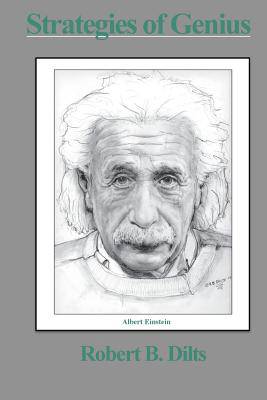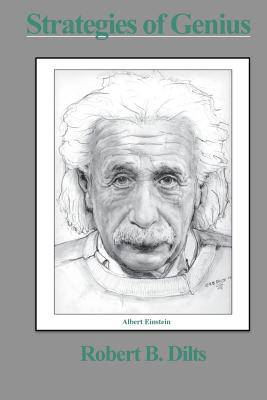
- Retrait gratuit dans votre magasin Club
- 7.000.000 titres dans notre catalogue
- Payer en toute sécurité
- Toujours un magasin près de chez vous
- Retrait gratuit dans votre magasin Club
- 7.000.0000 titres dans notre catalogue
- Payer en toute sécurité
- Toujours un magasin près de chez vous
Description
Albert Einstein is not only acknowledged around the world as a genius but has practically become the symbol for genius in this century. His ideas encompassed our spiritual and social worlds as well as scientific and physical reality. He introduced a whole new paradigm of thinking that has affected many different areas of our lives. His discoveries in the field of theoretical physics made the "atomic age" possible and his humanitarianism has served as an example for the entire scientific community. His theory of relativity changed our entire conception of the universe and such basic aspects of our reality as time, space, matter and energy.
This book analyzes the thinking processes behind Einstein's unique personality and accomplishments. Using the cognitive modeling techniques of Neuro-Linguistic Programming the book explores and illuminates Einstein's mental strategies and beliefs.
The purpose of the study is to look beyond the specific content and scientific details of Einstein's thoughts to the cognitive 'strategies of genius' that created them. NLP provides a structure and a language to be able to put into a set of 'chunks' or steps the relevant mental processes used by Einstein. In this form, those mental processes can be transferred to others and applied in contexts other than physics.
By examining numerous quotations, excerpts from Einstein's own writings and anecdotes, the author paints a rich picture of Einstein's thinking processes and then shows how those thinking processes may be used by the reader to enhance his or her own creativity and problem solving ability.
This book is the second volume of a larger study on the Strategies of Genius. Volume I explored the creative process of Aristotle, Arthur Conan Doyle's Sherlock Holmes, Walt Disney and Wolfgang Amadeus Mozart. Future volumes include studies of Sigmund Freud, Leonardo da Vinci and others who have helped to shape our modern world
Spécifications
Parties prenantes
- Auteur(s) :
- Editeur:
Contenu
- Nombre de pages :
- 254
- Langue:
- Anglais
Caractéristiques
- EAN:
- 9781947629097
- Date de parution :
- 19-10-17
- Format:
- Livre broché
- Format numérique:
- Trade paperback (VS)
- Dimensions :
- 152 mm x 229 mm
- Poids :
- 344 g







